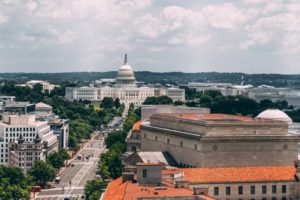Updated May 1, 2022
Read a Becker News article entitled, “Federal Investigators Reveal ‘Bombshell’ Findings CDC & FDA Undertook Politically Motivated Actions During Covid Pandemic” claiming “A federal investigation into Health and Human Services, National Institutes of Health, the Centers for Disease Control and Prevention (CDC), and the Food and Drug Administration (FDA) found that public health officials suppressed Covid study findings for political reasons, the Government Accountability Office (GAO) has revealed in a 37-page report“.
Read the complete Becker News Article here
April 28, 2022
Excerpted/Quoted from an April 2022 report from the GAO for Congress in the interest of Scientific Integrity recommends HHS Agencies Need to Develop Procedures and Train Staff on Reporting and Addressing Political Interference.
The GAO defined “scientific integrity as the use of scientific evidence and data to make policy decisions that are based on established scientific methods and processes, are not inappropriately influenced by political considerations, and are shared with the public when
appropriate. GAO was asked to review scientific integrity policies and procedures, and how allegations of political interference in scientific decision-making are addressed at CDC, FDA, NIH, and ASPR”.
The GAO found, “The four agencies GAO reviewed do not have procedures that define political interference in scientific decision-making or describe how it should be reported and addressed. These agencies within the Department of Health and Human Services (HHS) are: the Centers for Disease Control and Prevention (CDC), Food and Drug Administration (FDA), the National Institutes of Health (NIH), and the Office of the Assistant Secretary for Preparedness and Response (ASPR). The absence of specific procedures may explain why the four selected agencies did not identify any formally reported internal allegations of potential political interference in scientific decision-making from 2010 through 2021. Through semistructured interviews and a confidential hotline, employees at CDC, FDA, and NIH told GAO they observed incidents that they perceived to be political interference but did not report them for various reasons. These reasons included fearing retaliation, being unsure how to report issues, and believing agency leaders were already aware. HHS could strengthen its desired goal of sustaining a culture of scientific integrity by developing procedures for reporting and
addressing political interference in scientific decision-making. Such procedures would ensure that employees know how to report allegations, and that HHS’s agencies have a clear, consistent process for investigating and addressing such allegations. To help reduce employees’ fear of retaliation and encourage appropriate reporting, agencies could include information on whistleblower protections, and clarify any reporting requirements for employees who believe they observed potential political interference in scientific decision-making”.




